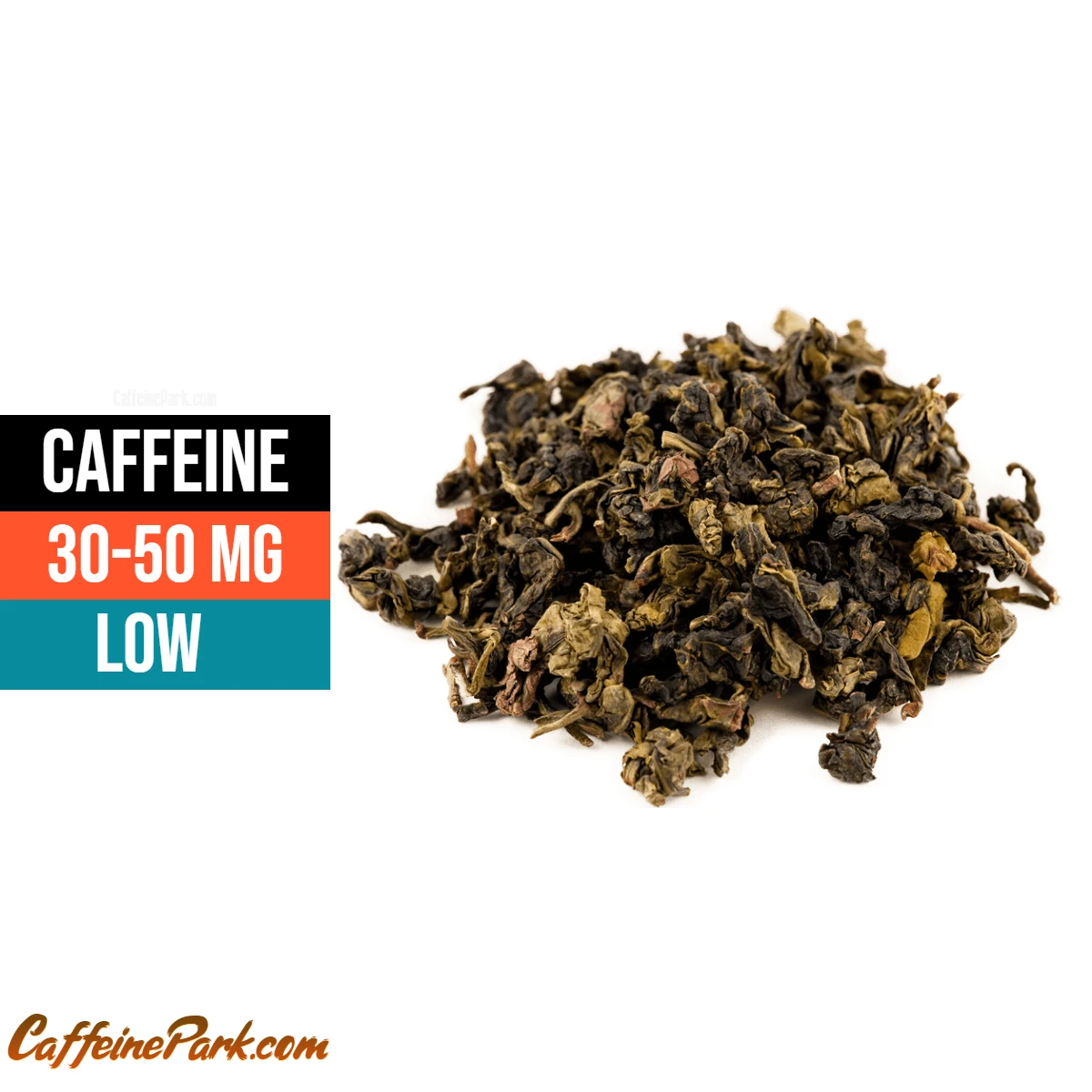Ti Kuan Yin Tea Caffeine Content

Hello there! Are you a tea lover? Do you enjoy exploring different types of tea? If yes, then you might have heard about Ti Kuan Yin tea, a popular type of Chinese oolong tea. One of the common questions that tea enthusiasts often ask about this tea is its caffeine content. In this article, we will explore the caffeine content of Ti Kuan Yin tea and some related topics. So, grab a cup of tea, and let’s dive in!
Before we jump into the caffeine content, let’s get to know a little about Ti Kuan Yin tea. Ti Kuan Yin is a type of oolong tea that originates from China’s Fujian Province. It is also known as Iron Goddess of Mercy, a name derived from the legend of a poor farmer who discovered a tea plant and took care of it with devotion. The tea plant then transformed into the goddess of mercy and blessed the farmer with prosperity.
Ti Kuan Yin tea has a unique flavor profile that ranges from floral to nutty, depending on its level of oxidation. It is a partially fermented tea, which means it undergoes some amount of oxidation during processing but not as much as black tea. Ti Kuan Yin tea leaves are rolled into small, tight balls, which unfurl and expand when brewed in hot water.
Caffeine Content in Ti Kuan Yin Tea
Now, coming to the main topic of this article, how much caffeine does Ti Kuan Yin tea contain? The caffeine content in tea varies depending on several factors, such as the type of tea, brewing method, and water temperature.
On average, a cup of Ti Kuan Yin tea (8 ounces) contains about 20-50 milligrams of caffeine. However, this is just an estimate, and the actual caffeine content may vary depending on various factors.
- 1 teaspoon of loose Ti Kuan Yin tea (2 grams) steeped in 8 oz. of water for 3 minutes contains approximately 20-25 mg of caffeine.
- 1 teabag of Ti Kuan Yin tea steeped in 8 oz. of water for 3 minutes contains approximately 30-40 mg of caffeine.
- 1 cup (8 oz.) of Ti Kuan Yin tea made using 2 teaspoons of loose tea steeped in 8 oz. of water for 3 minutes contains approximately 30-50 mg of caffeine.
Please note that the caffeine content may vary depending on the brewing method and water temperature. Additionally, the caffeine content is not an exact science, and the above values are estimates based on research and general industry standards.
Compared to other types of tea, Ti Kuan Yin tea has moderate caffeine content. For instance, black tea typically contains more caffeine than oolong tea, and green tea has a lower caffeine content than both black and oolong tea.
Factors Affecting Caffeine Content in Ti Kuan Yin Tea
As mentioned earlier, the caffeine content in Ti Kuan Yin tea can vary depending on several factors. Here are some of the factors that can affect the caffeine content:
Type of Tea
The caffeine content in tea depends on the type of tea leaves used. For example, black tea typically contains the highest amount of caffeine, while white tea has the lowest. Oolong tea, including Ti Kuan Yin tea, falls in the middle of the spectrum.
Brewing Method
The caffeine content in tea also depends on how you brew it. The longer you steep the tea, the more caffeine it will have. Similarly, using hotter water can extract more caffeine from the tea leaves.
Water Temperature
The temperature of the water you use for brewing also affects the caffeine content. Using boiling water extracts more caffeine than using water that is not as hot.
Serving Size
The amount of tea you use and the size of the cup can also affect the caffeine content. If you use more tea leaves or a bigger cup, you will end up with more caffeine in your tea.
Health Benefits of Ti Kuan Yin Tea
Apart from its delicious taste, Ti Kuan Yin tea also offers several health benefits. Here are some of them:
May Boost Immunity
Ti Kuan Yin tea contains antioxidants that can help boost your immune system. These antioxidants fight against harmful free radicals and protect your body from various diseases.
May Aid in Weight Loss
Drinking Ti Kuan Yin tea regularly can also aid in weight loss. The tea contains compounds that can help boost your metabolism and
burn fat more efficiently. Additionally, Ti Kuan Yin tea is a low-calorie beverage, which makes it a great alternative to sugary drinks.
May Improve Digestion
Oolong tea, including Ti Kuan Yin tea, contains polyphenols that can help improve digestion. These compounds help reduce inflammation in the gut and promote the growth of beneficial gut bacteria, which can improve digestion and prevent digestive problems.
May Reduce the Risk of Chronic Diseases
Several studies have suggested that drinking tea, including Ti Kuan Yin tea, may reduce the risk of chronic diseases such as heart disease, diabetes, and certain types of cancer. The antioxidants and other beneficial compounds in tea can help protect your cells from damage and lower your risk of developing these diseases.
How to Brew Ti Kuan Yin Tea
Brewing Ti Kuan Yin tea is a simple process, but it requires some attention to detail to ensure that you get the best flavor and aroma. Here is a step-by-step guide to brewing Ti Kuan Yin tea:
- Heat the Water
Heat water to about 190-200°F (88-93°C). It is best to use filtered water to ensure that the taste of the tea is not affected by any impurities in the water.
- Rinse the Tea Leaves
Rinse the tea leaves with hot water for about 5 seconds. This helps to remove any dust or debris from the tea leaves and also activates the leaves.
- Steep the Tea
Place the tea leaves in a teapot or infuser and pour hot water over them. Let the tea steep for about 1-2 minutes, depending on your preference. You can adjust the steeping time based on the desired strength of the tea.
- Serve the Tea
After the tea has steeped, strain it into a cup and enjoy! You can also enjoy Ti Kuan Yin tea with milk, honey, or lemon, depending on your taste preferences.
Conclusion
Ti Kuan Yin tea is a delicious and healthy beverage that offers several health benefits. It has a moderate caffeine content and can be enjoyed as a daily drink without any adverse effects. The caffeine content can vary depending on various factors such as brewing method, water temperature, and serving size. To get the best flavor and aroma, it is important to pay attention to the brewing process and follow the recommended guidelines. So, next time you are in the mood for a cup of tea, give Ti Kuan Yin tea a try and experience its unique taste and health benefits!
FAQs
The caffeine content in Ti Kuan Yin tea can vary depending on several factors such as brewing method, water temperature, and serving size. On average, a cup of Ti Kuan Yin tea may contain around 20-50 mg of caffeine, which is about half the amount of caffeine found in a cup of black tea.
If you are looking for a low-caffeine alternative to coffee, Ti Kuan Yin tea can be a good option. It has a moderate caffeine content and can provide a gentle energy boost without the jitters or crashes that may be associated with coffee. However, if you are highly sensitive to caffeine or trying to cut down on caffeine, it is best to avoid Ti Kuan Yin tea or consume it in moderation.
Consuming too much caffeine can cause side effects such as jitters, anxiety, and insomnia. However, the caffeine content in Ti Kuan Yin tea is relatively low, and it is unlikely to cause these side effects unless consumed in large quantities. If you are concerned about caffeine-related side effects, it is best to consult a healthcare professional before consuming Ti Kuan Yin tea or any other caffeinated beverage.
If you are sensitive to caffeine or trying to cut down on caffeine, you can try reducing the steeping time or using cooler water when brewing Ti Kuan Yin tea. This can help reduce the caffeine content in the tea. You can also opt for decaffeinated Ti Kuan Yin tea, which is available in some specialty tea stores.
While Ti Kuan Yin tea is generally considered safe for consumption, pregnant and breastfeeding women should consume it in moderation. The caffeine content in Ti Kuan Yin tea can cross the placenta and enter breast milk, and high caffeine intake during pregnancy or breastfeeding may have adverse effects on the fetus or infant. It is best to consult a healthcare professional before consuming Ti Kuan Yin tea or any other caffeinated beverage during pregnancy or breastfeeding.
Read More:





